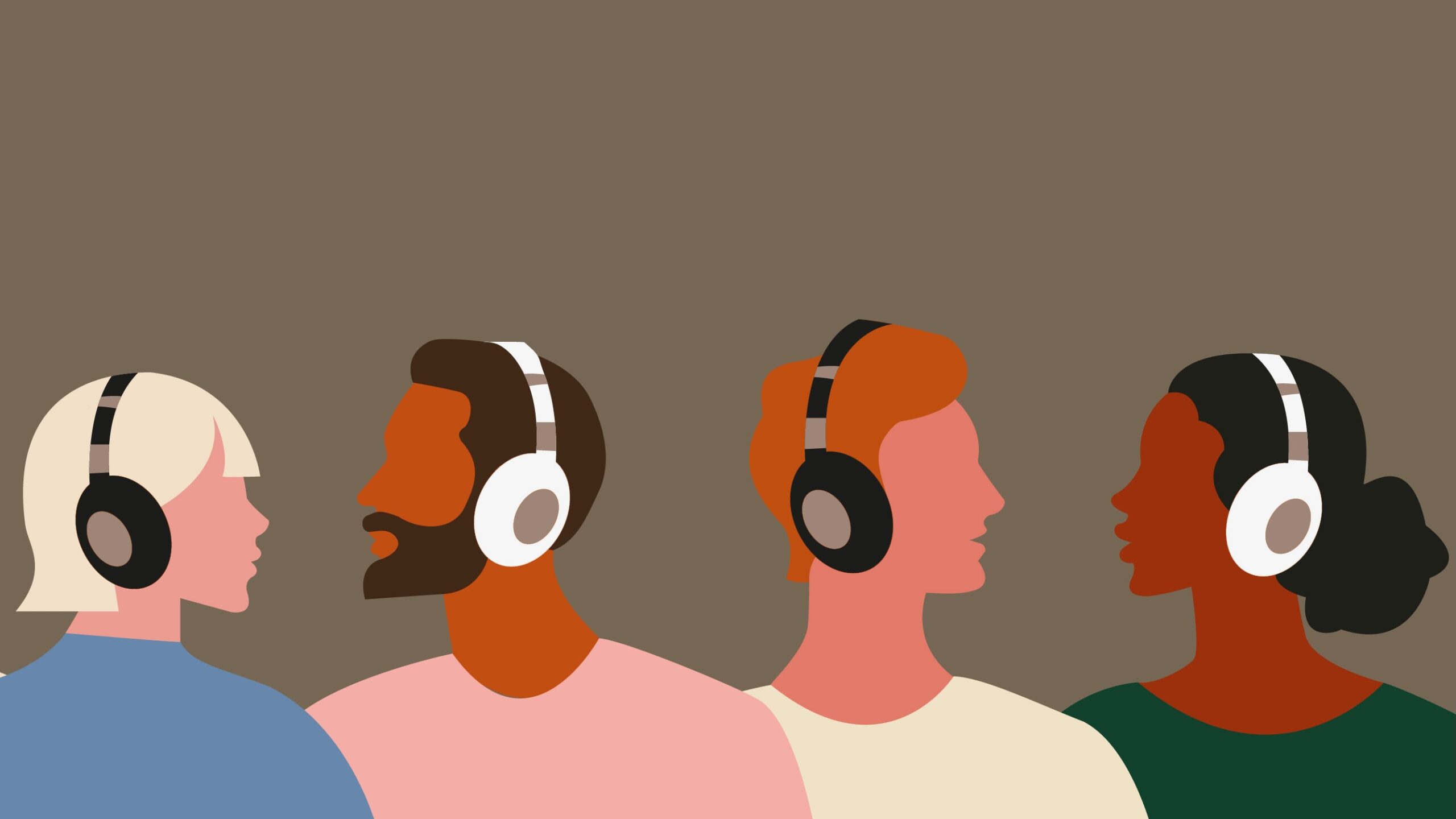‘The Pub’ #42: This American Life’s Stephanie Foo on how to fix public radio’s whiteness problem

This American Life producer Stephanie Foo is dismayed by all subpar storytelling, but especially that which can be attributed to the lack of diversity in public media workplaces.
“I just hear so often stories about people of color that are just coasting — coasting!” she told me on The Pub, calling out stories that rely on exoticizing their subjects to generate interest.
“Like, ‘Maybe if I throw in enough saffron and bright colors and, like, bells on sarees, this will be interesting.’ No! There needs to be a problem, there needs to be a conflict,” she said.
This week on The Pub, Foo talks about her frank and funny manifesto for Transom, “What To Do If Your Workplace Is Too White,” and offers examples of how reporters of any identity can tell better stories about people of color.
Also on the show:
- Novelist and journalist Teddy Wayne describes the contrived informality he hears in the voicing of narrative radio, which he decried in his New York Times piece, “‘NPR Voice’ Has Taken Over the Airwaves.”
- We’re at the dawn of a glorious new era! I talk about exciting emerging technologies for recording high-quality remote interviews, from VoLTE to Ringr, while NPR chief audio engineer Shawn Fox predicts the death of ISDN and its replacement.
- What the backlash to a PBS NewsHour story about charter schools and the backlash to the New York Times’ exposé about Amazon.com have in common.
Please subscribe to The Pub in iTunes or your favorite podcast app, and leave us a rating and a comment! That will help boost our search results and allow people to find the show more easily.
We welcome your feedback on the show: You can reach me at adam@current.org or @aragusea on Twitter; my supervising producer at Current, Mike Janssen, is at mike@current.org; and you can contact Current generally at news@current.org or @currentpubmedia on Twitter.
If you’d like to offer a comment to be used in the program, please send on-mic tape (recorded in a studio, with a kit, a smartphone, anything) to adam@current.org either as an attachment or through Google Drive. Please keep it short!
Adam Ragusea hosts Current’s weekly podcast The Pub and is a journalist in residence and visiting assistant professor at Mercer University’s Center for Collaborative Journalism.







I have a suggestion that might increase all kinds of diversity. Public radio could create a variety of online streams for a “minor league” of shows that could allow people to learn how to produce quality shows. The hosts could even set up IRC chat rooms to allow the audience to provide instantaneous feedback. The big established shows could even benefit from a chat room.
This shows topic reminded me on the show you did about recruiting conservative hosts. Perhaps public radio isn’t really interested in diversity at all. Why did NPR fire Juan Williams for his comments, and not fire Nina Totenburg?
I have to agree that Car Talk needs to give up its time slot for a new show. How much longer are these zombie shows going to air?
Thank you for letting me listen.
Which Totenberg comment are you referring to?
“I think he ought to be worried about what’s going on in the good Lord’s mind, because if there’s retributive justice, he’ll get AIDS from a transfusion or one of his grandchildren will.”
Yeah, I mean, I think public radio already has farm teams: the stations. Unfortunately, too many stations don’t function that way, they mostly function as local distributors of national content. Sure, most stations have always had some local shows, but mounting research shows that audiences won’t tolerate content that isn’t produced to the same (very high) standard, so it’s tough for a station to allow much experimentation and remain viable. That’s one of the reasons I’m not sanguine about the longterm fate of most stations. I think podcasting is accomplishing some of the things you’re after, though only partially within public media.
I have little insider knowledge of the Juan Williams affair, but based on some published comments from the time and my own educated intuition, I don’t think he was fired for his comments. He was fired because he was bad at his job, a situation that was exacerbated by his habit of going on Fox and saying ill-considered things. The comment about Muslims on planes wasn’t an unforgivable offense, it was the straw that broke the camel’s back, and the NPR management at the time (none of whom are left) did a bad job communicating that. Nina Totenburg has made some ill-considered remarks as well, but she’s amazing at her job and everyone who works with her loves her. That rightly counts for something.
I’m not so worried about Car Talk itself sticking around, I’m worried about the precedent it sets. As more shows that are loved by the baby boomer core audience start to shut down, public radio could turn into a nostalgia factory if it’s not careful. That hasn’t worked for public TV.
Thanks for listening!
I already find that “nostalgia factory” mindset at work on those public radio stations that continue to do old time radio shows, which outside of some unquestionable classics (like Jack Benny and Fred Allen’s shows) is, once you get the cloud of nostalgia out of the way, even more banal than your typical reality show, laugh track sitcom or procedural of today’s TV. I will probably anger a lot of Boomers and Greatest Generationists by saying this, but WAMU should’ve retired “The Big Broadcast” with Ed Walker’s retirement (and his death hours after the final broadcast). And any other pubradio stations out there that still do OTR should really be rethinking it (even if it means having to withstand angry listeners threatening to pull their pledges).
Sticking my nose in as an avid public radio listener, not an employee, but I must agree that Car Talk is taking up an hour of prime weekend real estate. I *love* Click and Clack. LOVE. But I can – and do – listen to them joust and puzzle about an 80s or 90s-era jalopy by podcast, rather than expect to hear it over the air. While we’re at it, can’t we stable Garrison Keillor before he actually conks out on air? Yawn… (P.S. I’m 53, both shows’ target demographic.)
Oh, Garrison is on his way out, and he seems to mean it this time: https://current.org/2015/06/garrison-keillor-reveals-next-host-for-a-prairie-home-companion/
Isn’t paying for prioritization for public radio bandwidth against FCC Net Neutrality rules?
No, dedicated Internet is a totally different thing. ISPs can charge consumers all they want for faster or more reliable service. Net neutrality forbids ISPs from charging the providers of Internet services (Netflix, for example) more money than others to reach consumers through the Internet. The idea is that you want consumers to pick the winners, not the gatekeepers.
Thank you Stephanie Foo @imontheradio @aragusea @PubPodcast for the honest, smart, necessary convo starting at 35:08. If public media doesn’t embrace the current reality — that our audiences are younger and more diverse than ever before — can public media even have a future at all? The idea that one day PBS and NPR could disappear is quite horrifying to me. But how can public media survive if it doesn’t evolve and speak to/engage …. the public?